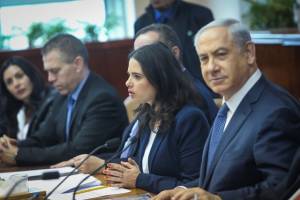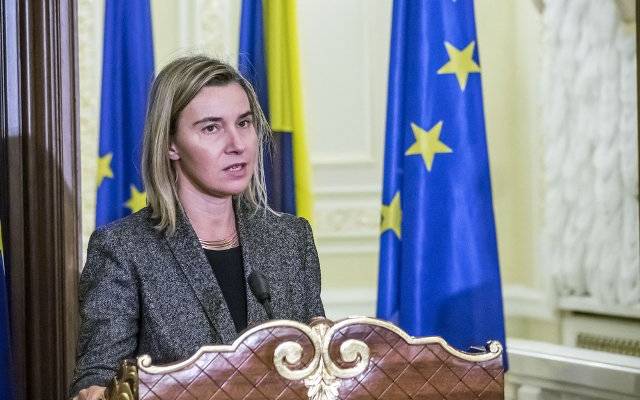
The European Union HQ in Brussels. (Shutterstock)
Completely ignoring reality, the EU has again placed the onus for all conflicts in the Middle East solely on Israel and ruled that Judea and Samaria are prohibited from being included in any deals with the Jewish State.
The European Union (EU) passed a new resolution on Monday declaring that all its deals with Israel must “unequivocally and explicitly” show that they cannot apply to Judea and Samaria, which they deem “occupied territories,” a move that builds on a November decision to specially label Israeli goods produced in Judea and Samaria and the Golan Heights, thus singling them out for boycotting.
The European Union’s Foreign Affairs Council, comprised of 28 EU foreign ministers, claimed in a statement that the new decision “does not constitute a boycott of Israel which the EU strongly opposes.”
The resolution criticized Israeli policy in Judea and Samaria. Calling Israeli communities an “obstacle to peace,” the EU said it “reiterates its strong opposition to Israel’s settlement policy and actions taken in this context, such as building the separation barrier beyond the 1967 line, demolitions, and confiscation—including of EU-funded projects—evictions, forced transfers including of Bedouins, illegal outposts, and restrictions of movement and access.”
The resolution also discusses the EU’s promotion of the two-state solution and attempts to jump start the failed diplomatic process between Israel and the Palestinians.
The EU has approved similar resolutions in the past.
Greece, the Czech Republic, and Hungary were instrumental in toning down the tougher language on Israel, the Jerusalem Post reported, while Sweden, Ireland and France were said to be the driving force behind the anti-Israel resolution.
Palestinians welcomed the stance, while Israel accused the EU of discrimination.
Palestinian official Saeb Erekat said the EU announcement was “a step forward toward accountability,” but that Europe should take “immediate steps” such as banning the import of products made in Israeli communities in Judea and Samaria, and called on greater European involvement to end what he termed “Israel’s occupation of the West Bank.”
Sharp Israeli Condemnation from Across the Political Spectrum
Israel’s Foreign Ministry said the EU statement had been “softened” thanks to lobbying by the ministry and by Israeli Prime Minister Benjamin Netanyahu, but said the EU had ignored the Palestinian Authority’s (PA) responsibility for the freeze in peace negotiations and continued to apply a double standard in relation to Israel.

Minister of Justice Ayelet Shaked (C) and PM Netanyahu. (Alex Kolomoisky/POOL)
“Out of about 200 border conflicts in the world, the European Union is choosing to discriminate only against Israel. This stance prevents the (European) Union from being a fair player in resolving the conflict,” the Foreign Ministry statement said.
Israeli Minister of Justice Ayelet Shaked criticized the EU for ignoring the cause of conflict in the region, referring to the Palestinian incitement which leads to terrorism, and instead “chooses, as usual, to deal with Israel in some unclear obsession.”
Deputy Foreign Minister Tzipi Hotovely said the EU’s resolution would achieve the opposite of what it was seeking declaratively, and would further prevent any dialogue between Israel and the Palestinians. The EU is providing the Palestinians “with a tail wind to carry through with their attempts to assault Israel in the international arena and to continue with the nonstop incitement to kill Israeli citizens.”
Opposition leader Member of Knesset (MK) Isaac Herzog “thanked” the EU for supporting the anti-Israel BDS (Boycott, Divest, sanction) movement with this resolution. “I regret that the EU has lent support to the BDS – this is the meaning of the resolution.
MK Yair Lapid, a member of the opposition, condemned the EU for their policy of meddling with Israel’s sovereignty. The EU’s statement is an attempt to determine Israel’s future borders, he said, “and to create a reality on the ground which distances the possibility for a [diplomatic] settlement that separates the Israelis and Palestinians.”
By: AP, JNS.org and United with Israel Staff










